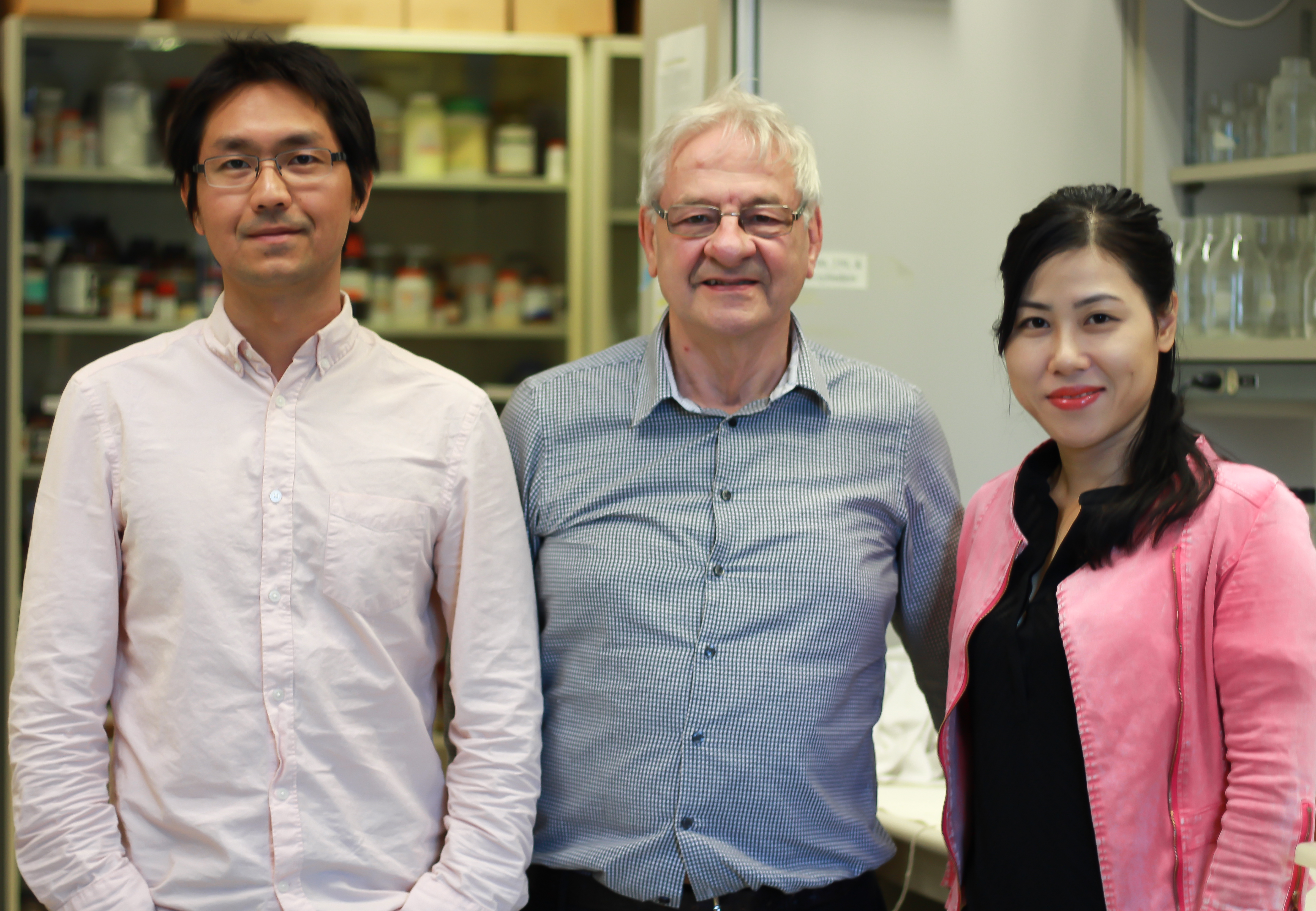
Biochemistry professor David Brindley (centre) with two members of his team, Xiaoyun Tang (left) and Guanmin Meng
Scientists at the Cancer Research Institute of Northern Alberta discovered that irradiating breast fat produces an inflammatory response that counteracts the effectiveness of radiotherapy.
"After removal of breast tumours (lumpectomy), the breast is exposed to 16 daily doses of radiotherapy. Each dose stimulates breast fat to release autotaxin, an enzyme that initiates wound-healing," said David Brindley, professor of biochemistry. "This response protects residual cancer cells from being killed and leads to scarring (fibrosis) in the breast."
Funded by Canadian Cancer Society Research Institute and the Canadian Breast Cancer Foundation, Brindley's team is now seeking to counteract these adverse effects. They are working with an experimental autotaxin inhibitor with the hope that it can improve the effectiveness of radiotherapy and decrease the adverse effects of scarring.